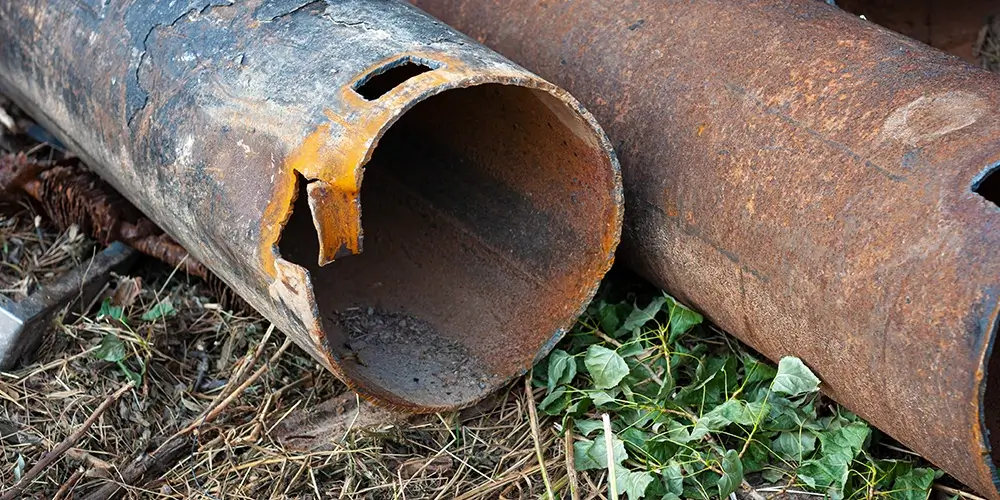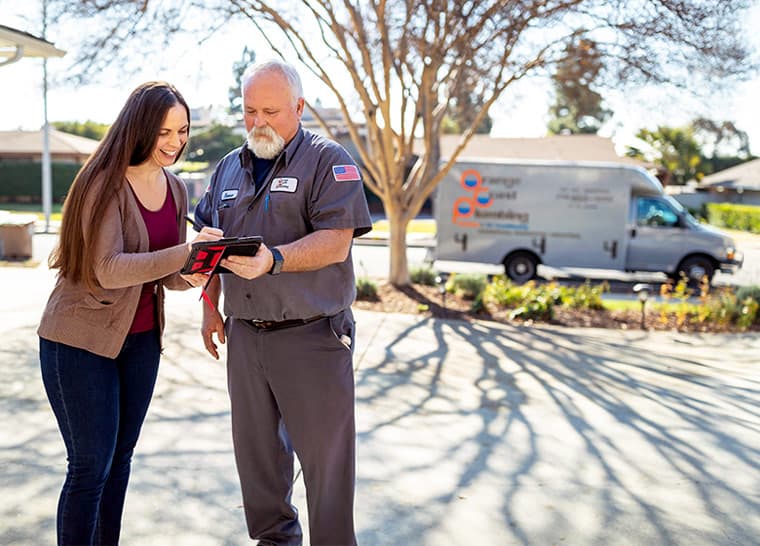All plumbing pipes have a limited lifespan. Well-maintained copper lines can last 80 or more years, and PVC from 20 to 50 years.
Average US homeownership runs for about 13 years. Serious plumbing issues may never arise during that ownership period. But what if they do?
The median age of an Orange County home is 40 years. Roughly half of all Orange County homes have 40-year-old plumbing or older. Those pipes are approaching the upper limit of their service life. Perhaps your plumbing has already developed a few undetected pinhole leaks.
When you purchased your pre-owned home, you assumed someone else’s plumbing history — someone who may not have been gentle on the pipes.
Abuse, corrosion, mineral deposits, shifting soil, severe temperature change, and rodent damage contribute to shortened pipe life and potential plumbing disasters.
But regular maintenance and care can extend the life of your pipes dramatically — even when they’ve been neglected or abused. Here, we’ve listed simple things you can do to keep your plumbing in good working order until it’s time to upgrade.
1. Schedule Regular Maintenance
Regular maintenance should include checking for leaks, cleaning your drains, flushing your water heater, and ensuring correct water pressure in the lines. It’s also a good idea to have a professional plumber inspect your pipes once a year to detect any potential issues before they become costly.
Even better, consider investing in a smart water leak detector to alert you to potential problems, including the tiniest pinhole leaks that can undermine the concrete foundation of your home. The device can automatically shut down your plumbing system until you have time to call for a repair.
2. Protect Your Pipes from the Elements
Exposed pipes should be covered or insulated to protect them from the elements. Extreme temperatures and sunlight can damage your pipes over time. Consider wrapping exposed piping with insulation sleeves or foam.
3. Watch What You Put Down the Drain
Fats, oils, grease, hair, and feminine hygiene products are common factors in drain clogs. Never let these things go down the drain; instead, dispose of them properly in the trash.
4. Clean Out Clogs & Slow Drains
Slow drains and sewage backups are symptoms of corrosion and blockages. Periodic plunging or snaking should help keep your pipes clear of obstructions. Eco-friendly drain cleaners can break down grease, oil, soap scum, and other organic matter that build up in pipes.
Severe clogs and backups are a job for a professional who may have to hydro jet the line or even replace a section of pipe. Whatever you do, don’t ignore slow drains and “learn to live with them.” Clogged pipes can burst under pressure.
5. Understand Your Pipe Materials
Knowing the type of material used in your pipes can help you maintain them. PVC may be vulnerable to rodent or sunlight damage, and galvanized steel may be rust-prone.
If your pipes are old or show signs of wear and tear, consider upgrading or relining them. You may want to replace old galvanized pipes with copper or PVC.
6. Replace Corroded Pipes & Fixtures
Discolored water or orange-brown stains in your sink or tub are signs of pipe or fixture corrosion. Corroded pipes and fixtures can seriously harm your plumbing system; the process begins with a chemical reaction eroding the protective oxide layer on metal surfaces. High levels of oxygen, chlorine, phosphate, or other highly reactive compounds in water can accelerate oxidation.
A professional plumber should be able to tell you which pipes and fixtures are candidates for immediate replacement.
7. Flush Your Water Heater
We’ve already touched on this point of maintenance. Mineral deposits, like calcium and magnesium, will accumulate over time in your water heater tank. This is known as scaling, and it can reduce the efficiency of your water heater and shorten its lifespan.
Scaling on the bottom of the tank makes it harder for heat to move from the heating elements to the water. Flushing your tank every year or so helps to remove scaling and keep the heater running smoothly. It’s easy enough to flush a water heater DIY, but removing heavy scaling and repairing damaged water heater parts should be left to a professional plumber.
8. Install a Water Softener
Water softeners use salts or resins to filter out minerals in your water supply. They reduce scaling and make “hard” water safer to drink. They also make life easier for water heaters, washing machines, and dishwashers and give you cleaner laundry and dishes to boot! Most Orange County water is notoriously hard, so a water softener is a sensible investment in your plumbing.
9. Regulate the Water Pressure in Your Lines
High water pressure from your main line can destroy your pipes and plumbing fixtures. A hose bib gauge, available at most hardware stores, will give you an accurate water pressure reading, or you can have us check your water pressure on our next visit to your home.
Water pressure should be in the 40-85 PSI range. Anything above 85 is dangerous to the health of your pipes.
Your plumbing should have pressure regulators installed; if not, contact us to install them or replace defective parts. Pressure-reducing valves (PRVs) protect your water lines, reduce water waste, and save you money on your monthly bills.
10. Invest in a Smart Leak Detector
What if we told you there’s a simple and affordable way to keep your water bill low and detect even a pinhole leak anywhere in your plumbing system — before it causes significant damage?
We’re talking about a smart water leak detector, a Wi-Fi-enabled device that attaches to your plumbing and monitors water use in your home — including tiny increases in water use or activity in your pipes due to pinhole leaks.
The best smart detector, in our opinion, is the Moen Flo Smart Water Monitor & Shutoff, a device we sell at Orange Coast Plumbing.
It measures gallon usage through an internal mechanical turbine or ultrasonic wave. After a learning period of about a week, it can distinguish everyday water use from any variation, which may indicate a leak.
With an unexpected jump in water use, it shuts off the main water valve to your home. Damage and repair costs stay at a minimum.
Summary
Extending the lifespan of your pipes doesn’t have to be complicated. With regular maintenance and a few precautions, you can ensure that your plumbing lasts well into the future.
Please call Orange Coast Plumbing if you need help with any of these tasks or any other plumbing repair or maintenance service. We’re here for all your residential and commercial needs and are available 24-7.


